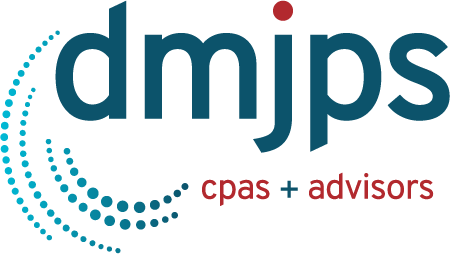The purpose of this memo is to alert you to a tax issue which has penalized you since 2018, and an opportunity to mitigate this – new for 2022. After you have had a chance to digest this information, please reach out to your DMJPS contact to discuss whether you should take action on this opportunity before December 31.
The Issue
The Tax Cuts and Jobs Act of 2017 made a specific tax change which is still having a profound impact on tax filings. The specific provision states that total state and local taxes, deducted on 1040 Schedule A, cannot exceed $10,000. The following is a typical form 1040 tax return situation on Schedule A.
Here, the taxpayer has state and local income taxes, real property taxes, and personal property taxes, totaling $16,882. The total deduction allowed is limited to $10,000, by rule, under this legislation.
Many states have struggled to find workarounds so that their residents are not penalized by this provision. This is particularly true in high tax states, such as California, New York, and New Jersey, whose residents are perhaps disproportionately penalized. But it also applies in states like NC for middle and upper-income taxpayers.
This is a particular problem for those who report income from businesses. There is no limit on the state tax deduction for C-corporations, so traditional corporations continue to be able to deduct their state tax obligations, in full. However, most businesses today are passthrough entities (“PTEs”) – partnerships, LLCs and S-corporations – where the tax is paid at the personal level. In that situation, the state tax on the business income is subject to the limitation noted above.
So if the individual in the above illustration were to acquire a business that generated $50,000 of state tax per year, they would add $50,000 to line 5a. The net federal deduction benefit of this state tax paid would be zero, since they are already at the $10,000 statutory maximum deduction.
Similarly, some states (Tennessee, for example) tax the business profits at the business level, not at the shareholder level. Tax on Tennessee income is allowed to be deducted on the business’ federal income tax return. Said another way, in Tennessee, the PTE is treated as a C-corporation, and those taxes avoid this limit entirely.
The Solution
A common workaround, which has been blessed in concept by the Department of Treasury, is for states to permit a PTE to be taxed at the business level instead of the individual level. This is for state income tax only. This would, in effect, provide an end-run around the state tax limitation on the 1040 because it would be deducted by the business itself, such as in Tennessee.
Most states in our area have passed a PTE tax, including North Carolina, South Carolina, Virginia, Georgia and elsewhere including California, New York, and New Jersey. As of 8/31/2022, all but 8 states that impose a personal-level income tax have gone this route.
The exact mechanism for how this works varies by state, but in general, if the business elects to pay PTE –
- The PTE would pay the state tax for the owners.
- The owners would not be taxed on the business income a second time on their personal state tax returns.
- Any loss by the business would be available at the business level only, and would not flow through to the owners.
- Businesses that make distributions to the owners to pay income tax can distribute less, since the owners are no longer subject to income tax in certain states. Instead, the business will need to pay more tax itself to these states.
- In some states, a business faces a lower income tax rate than would an individual taxpayer. How this will work could vary by state.
- The business may face additional compliance complexity through the need to pay state income tax, state estimated taxes, etc. This analysis is particularly complex where the business is reporting income in multiple states, and further where the state residency of the owners varies.
NC’s Participation
Beginning for tax year 2022, NC entities can choose to pay PTE tax on behalf of its owners. Here are some relevant issues to consider:
- All S-corporations are eligible but only some LLCs and partnerships are eligible. We can discuss whether your entity can make the PTE election. A single-member (one owner) LLC is not eligible, but we can discuss some alternatives to this result.
- All members / partners / shareholders in the entity must participate. The company cannot pay PTE tax for some but not others.
- The entity will need to pay NC quarterly estimated PTE tax payments, but that does not begin until 2023 (it is waived for 2022).
- If the owner is paying 2022 estimated taxes to NC based on this business income, they might want to consider reducing or eliminating those payments if the business plans to make a PTE election. The election is made on that year’s tax return.
- If the entity pays the 2022 NC PTE tax when it files the 2022 return in 2023, then its deductible when paid in 2023. However, if the entity wants a 2022 deduction, it should estimate its NC PTE tax in December of this year and make a prepayment of the tax.
- Each year is an election unto itself. So, making the election for 2022 does not commit you for future years.
- Note that there are many other important details which have not been announced by the N.C. Dept. of Revenue as of this writing. Further, late legislative changes are possible.
Potential Negatives
There seems to be little downside for NC entities with NC owners to making the PTE tax election, where eligible.
One noteworthy issue is for a business that is expected to generate losses, since the losses might be better used by the owners, assuming that they have sufficient basis to deduct said losses. An eligible business with a loss might choose to make the election anyway so that the loss will be available to shelter future profits.
Another noteworthy negative issue involves businesses with multi-state operations or owners. In this situation, care must be taken to ensure that the payments and related credits will work as intended, because it’s possible that a PTE election in this situation could actually increase your state tax cost.
Actions Requested of You
- Let’s discuss before 12/31/2022 whether your business is eligible to pay PTE taxes. If “yes”, then continue –
- Then let’s discuss whether it’s a good idea in your situation. If “yes”, then continue –
- Then let’s estimate your state income tax liability and consider paying it to the NCDR before 12/31/2022.
- And don’t forget to consider your rental activities, if they are in a qualifying entity.
How to Prepay the 2022 NC PTE Tax
Pay by 12/31/2022 to ensure a 2022 deduction with form “NC-429 PTE”. If the tax is not prepaid by 12/31/2022, the deduction is available in 2023.
Version 2.6 – 11/15/2022
For a printer friendly version, CLICK HERE.

